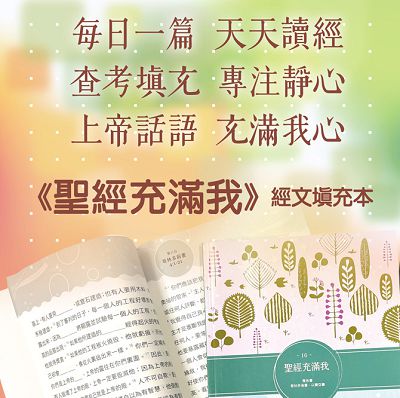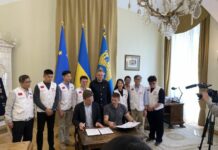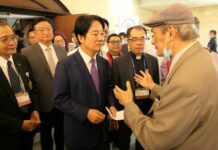3106 Edition
September 5-11, 2011
Headline News
Anti-nuclear sentiments continue to rise in Taiwan with PCT leading the pack
Reported by Lin Yi-ying, Sam Lee, Chiou Kuo-rong
Written by Lydia Ma
PCT’s “One-leads-One, New Doubling Movement” center recently held a seminar on September 5-6, 2011, in Tainan’s Fuchiang Presbyterian Church. The seminar is part of a series of seminar on the subject of “Nuclear-free Homeland” to be held in the next few weeks across Taiwan.
PCT invited former Environmental Protection Agency (EPA) minister Lin Jun-yi to be the keynote speaker for this seminar. Lin spoke about the essence of ecological ethics, hidden truths about nuclear energy and renewable energy among other topics. In recent months, he has also been invited by other organizations to be their keynote speaker on this subject and has never shied away from voicing his opinions.
“Did you know that it costs 7 to 700 times more money to clean up a nuclear spill than it costs to build a nuclear reactor? Nuclear energy in inhuman because it takes at least 24,700 years to get rid of 50% of wastes generated by nuclear energy, especially Plutonium. It takes 250,000 years for these nuclear wastes to be completely non-hazardous and I am not exaggerating these numbers!” he said.
He turned to the Fukushima Daiichi nuclear disaster as illustration and said that an area extending 60-km radius from the plant had been contaminated and many produces had also been contaminated by radioactivity. If consumers were to eat any of these produces by accident, they would also be poisoned by radioactivity.
Lin concluded that as soon as the Fourth Nuclear Power Plant begins operations, Taiwanese must brace themselves to cohabitating with a monster that that will never die or sleep. If a nuclear spill similar to the one that happened in Fukushima were to take place in Taiwan, not only would people’s investments and houses be reduced to nothing, the number of casualties would also skyrocket. “Humans need to know their place in the world and be more humble!”, he added.
From a theological perspective, opposing nuclear energy is tantamount to opposing wasteful usage of resources. Tainan Theological College and Seminary Professor, Rev. Yuang Shun-tsung, urged the audience to reconsider that humans are in the same boat as the rest of creation and it was important for us to have a right relationship with God and with the rest of creation.
As for PCT’s role in helping Taiwan become a nuclear-free country, PCT Church and Society Committee Secretary Huang Che-yen said that, as early as 1992, PCT had issued an anti-nuclear declaration. In it, the church stated clearly that, “looking at our Taiwan homeland, we see the environment being destroyed by people’s greed and selfishness, and with the addition of mistaken political policies, all of this leads to a loss of harmony between people and nature. This is all the more critical when we see people in every country of the world gradually recognizing the inherent destructive qualities of nuclear power and, in mass, halting construction of future nuclear plants and abandoning present ones.”
The declaration also urged the nation to “actively pursue a simple life style, and treasure the natural resources God has bestowed upon [Taiwan]. Let us spare no effort for the ongoing welfare of the people and land of Taiwan.”
Huang underscored that though PCT’s stand on nuclear energy has been muted over the past 18 years, what happened in Japan this March was a wakeup call for the PCT to take up this issue once again and actively promote a nuclear-free Taiwan.
In related news, some anti-nuclear organizations spearheaded a petition that could lead to a referendum if enough petitions are gathered. A press conference in front of the Executive Yuan was held on September 1 to raise awareness on this matter.
The event’s convener, Taiwan Environmental Protection Union (TEPU) General Secretary Li Zuo-han, urged Taitung residents to speak up against nuclear energy because it is in Taitung where nuclear wastes are stored. He went on to urge Sinbei residents to speak up against nuclear energy because all nuclear reactors are located in their region.
TEPU will also organize various briefings open to the public in Sinbei area in the upcoming weeks to increase the number of petitions.
According to TEPU, Taiwan has enough ocean current and geothermal energy to meet its own energy needs and these should be carefully explored and used. These energy sources are not only safe in case of tsunamis but also environmental-friendly.
PCT Indigenous Ministry Committee Secretary Omi Wilan was present at this press conference on behalf of the PCT. He said that current nuclear waste storage facilities are located near the homes of Tao indigenous group and they are already operating at maximum capacity. Hence, the government’s next target destination for nuclear waste storage is Taitung, near lands resided by Paiwan indigenous groups. These locations reflect poorly on President Ma’s campaign promise to indigenous people, especially his infamous statement about treating indigenous groups as “human”.






